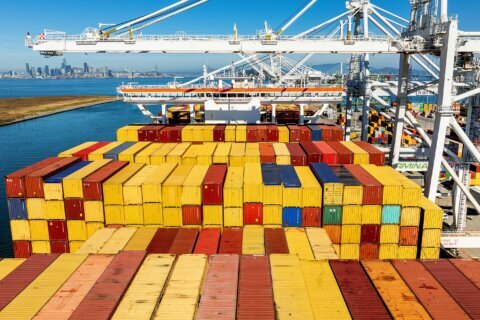Qantas is choosing Airbus over Boeing as a partner to fly the world’s longest passenger routes. It’s yet another blow to the embattled American aircraft maker, which continues to weather fallout from the 737 Max crisis.
The Australian carrier announced Friday that it would use Airbus planes for “Project Sunrise,” which intends to eventually operate regular non-stop flights from Sydney, Melbourne and Brisbane to London and New York.
The 19-hour journeys would be the longest passenger flights ever run by a commercial airline. They are still in the research phase.
Qantas said in its statement Friday that it had not yet placed an order for Airbus planes. But it added that it would work with Airbus to draft a deal for up to 12 planes that will be presented to the airline’s board.
Both aircraft makers had pitched their jets to Qantas in a competitive months-long process, with Boeing offering up the 777X and Airbus the A350.
Qantas CEO Alan Joyce called the decision “a tough choice” that was “made even harder by innovation from both manufacturers to improve on what they had already spent years designing.”
Airbus would add an extra fuel tank to the A350, which was selected for the project, and “slightly increase the maximum takeoff weight to deliver the performance required” on the new routes, Qantas said.
“From the outset, we’ve been clear that Project Sunrise depends on a business case that works. We’ll only commit to this investment if we know it will generate the right return for our shareholders given the inherent commercial risks,” Joyce said in his statement.
In addition to tailoring its aircraft, Airbus gave Qantas more time to decide whether it would confirm an order for the jets, the airline said.
Qantas said this played a role in its decision, particularly as it’s still negotiating how it would compensate its cabin crew for the flights, which could entail working for up to 22 hours straight. So far, the company says it has offered pilots a host of suggestions, including a 3% annual raise.
Boeing has had a terrible year, mostly because of its grounded 737 Max jet. The planes stopped flying in March after the second of two fatal crashes, and they won’t be approved to fly again before the end of the year, according to US regulators.
While Boeing’s stock has recorded gains this year, it’s still down 22% from a high in March before a Max plane crashed in Ethiopia.
So far, Qantas has conducted two out of its three planned test flights. The final experiment is slated for next week, with a decision on whether to proceed expected in March, the carrier said.







